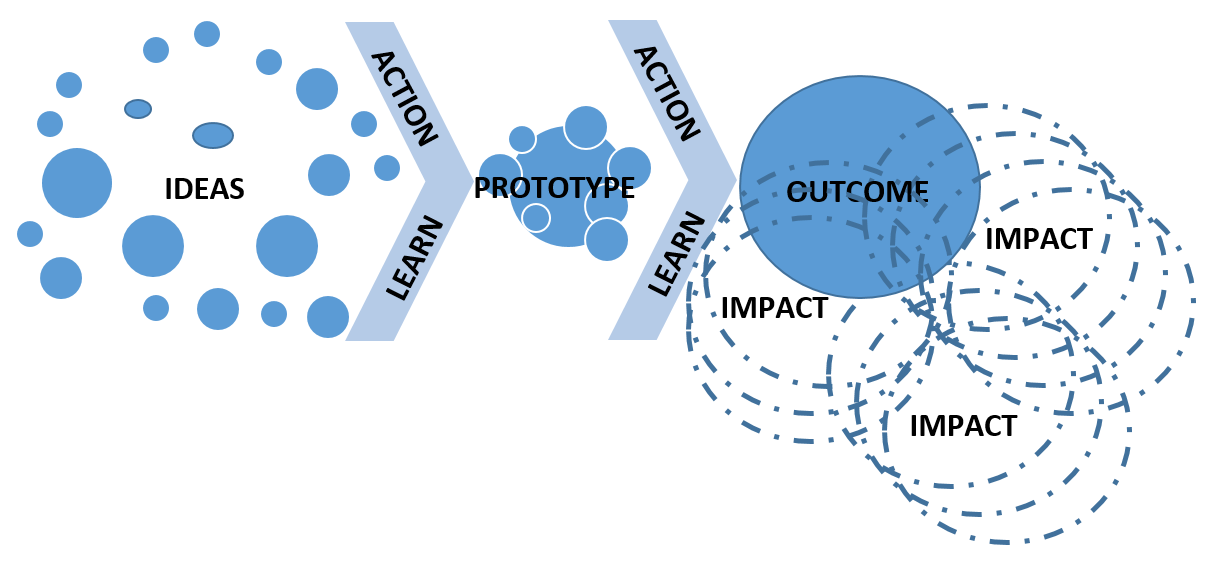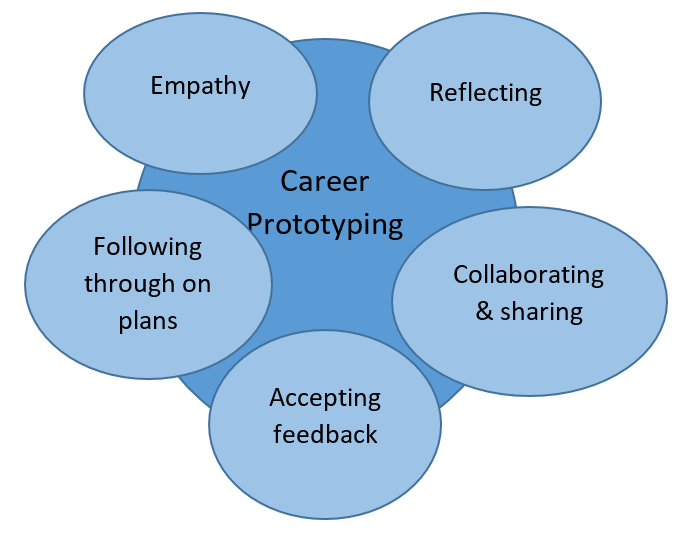Author: Dr. Julia Ivy is a strategy and international business executive professor and faculty director for the MS in International Business at Northeastern University, USA. She is also the author of Crafting Your Edge for Today's Job Market: Using the BE-EDGE Method for Consulting Cases and Capstone Projects.
Envisioning the future is important for our lives and well-being. Most meaningfully, our thinking about the future stimulates our actions today. And yet, this is not straightforward, given how much disruption has occurred not least due to the current global pandemic with its far-reaching economic outcomes. How we respond to this disruption, personally and together, is important.
Like disruption, a prototype is part of our everyday lexicon now. A prototype is an original model after which anything is formed[1], essentially it is translating an idea into action which leads to outcomes.
As our careers develop and progress, we learn that ‘we are all prototypes' seeking new ways of fulfilling our lives leading to outcomes for ourselves and others. There is nothing new about this. What is new is how we think about careers of the future, especially if we are experiencing disruption which we know is true for young workers, low to mid-income groups, and those on contract and casual labour contracts. The contraction for high paid workers is marginal[2].
So what to do? Why not prototype your future? How? You need to become the best inventor, problem solver and value-maker you can be. Everything you do and learn in life undergoes conversion in a direction that augments or improves your experience, skills and knowledge. A process that is lifelong that most of us do not think about much until we hit a high peak or a low trough. Just like any prototype no matter what we achieve can be improved upon if not by us, by someone else. The propelling force is reflection, critical thinking and problem-solving and not just at the points of high or low inflexion but now.

Figure 1: Trajectory of a Career Prototype
Only outcomes and impact demonstrates whether a prototype works or not. For example, does a prototype trigger further ideas or effects? You’re on a winner if it does. Figure 1 shows the trajectory of an idea via action into a prototype (e.g. a career plan) via action and learning to further outcomes and impact. Career prototyping occurs through trial and error in action, a skill in itself to develop and sustain value-making.
Creating careers, not selecting them from the ‘career supermarket shelf’, is at the heart of prototyping. The five career portfolio skills, shown in Figure 2 below, provide a new way for generating, investigating, and representing your capability to employers while at the same time, are inherently powerful in enhancing your personal and relational skills. Basing your thinking on ideas, yours or someone else’s, opens up the possibilities and potential of learning new patterns of inquiry and ways of augmenting skills and learning. It is essentially developing creative habits of mind to empower you to explore and invent career pathways for yourself across a broad range of disciplinary and professional spheres.

Figure 2: Career Prototyping Skills
A distinction between technical skills and personal and relational skills is that technical skills are context-specific, whereas the latter is not; they are readily transferable from job to job and workplace to workplace. Employers are starting to emphasise relational skills alongside technical skills. An employee requires both especially if they wish to lead others. These skills can be developed through work experience; volunteering, taking on side projects, internships, etc.
Career Creating Elements
A good starting point is by addressing the following questions: who, what, why, where, when, which and how. This process is best conducted by engaging with others, e.g. peers, experts, specialists, those with experience in the area of interest, as needed.
Collaboration is a central element throughout career creation. Using social media can radically enhance this process, e.g. Twitter can provide a means of career prototyping by getting people to provide information, feedback, passing on insights and just connecting through crowd-sourcing. Or just use it as a mini-blog.
Step 2 Draw up a career progression chart addressing the following:
- Context – list work spheres of interest; problems you may encounter in accessing ideas or entry.
- List sequence of actions to address any issues or questions you need to investigate your career options
- Outcome: what questions have you addressed satisfactorily; which ones are still outstanding.
Step 3: Reflect on who you. Seek and accept feedback, even if you disagree with it is a significant part of this process. For example, organise and describe your career based on an idea. Ask someone to review it and interrogate you about it. Choose an experienced person and a peer who knows you well.
Step 4: Imagine yourself working in that career. Download pictures and arrange them in the context of your selected career options. Create a website to upload and share your stories. Place yourself in the roles and reflect on your strengths, knowledge, skill gaps etc.
- What are the opportunities in each of the roles?
- Do you have any concerns about them? Even if you do not reveal your concerns to someone else, ensure that you are honest with yourself.
Step 5: Outcome and impact-driven.
Remember there is no beginning, middle or end to careers as the end of one career could be the beginning of another. Conversely, Step 5 may be Step 1 in your career prototyping journey: that is starting with career outcome or focus on what impact or difference you would like to make in your life. You may want to run your own business, become a marketing specialist, work in human resources, become a teacher, a health practitioner or work in a developing country to assist people to develop their education and health systems. Alternatively, you may one to do something that has not been invented yet. So start with the impact you want to make. Germinate an idea and then move to Step 1 above.
It is important to engage in this process without imposing restrictions or limits on yourself or merely accepting those from others.
Start to think differently about your career, when you do you will think differently about your future.